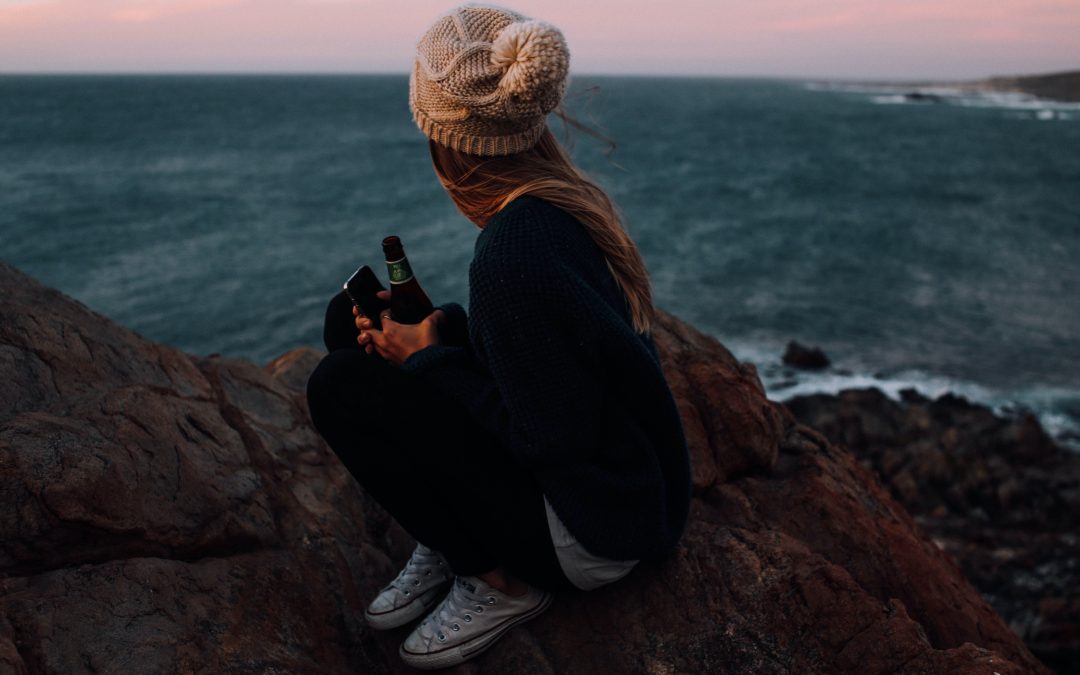Ever since I can remember I’ve felt anxious. When I was a child I would frequently have panic attacks about going to school or I’d obsess about how I thought other people viewed me. My anxiety was left untreated for many years, causing me to develop my own unhealthy coping mechanisms. I struggled first with self-harm, then an eating disorder, and eventually began using substances to regulate my emotions. I was a late bloomer in the sense that I didn’t start drinking until much later than most of my friends; the idea of feeling out of control originally scared me. However, the first time I got drunk was the summer before Grade 12 and I instantly loved the feeling. For the first time in my life, I couldn’t feel my anxiety and I was suddenly confident and carefree. I continued to be an occasional black-out drinker for the remainder of my high-school experience and into the beginning of my time at university.
Drinking excessively in a party setting appeared to be normalized, so I’d find every opportunity I could to engage in social drinking. Eventually, this wasn’t enough for me. After a series of traumatic life events my anxiety was louder, and blacking out among friends wasn’t satisfying the urge to numb myself. My drinking quickly escalated to a daily event, and I was no longer the functioning alcoholic I once was. My life became unmanageable and I was out of control. I’d wake up every morning and vow not to drink that day, only to find myself at the liquor store by the afternoon. I had pushed away my friends and family and although I could see the impact my drinking was having on my loved ones, I couldn’t stop. After reaching close to rock bottom, I left university and came home to begin treatment.
My recovery wasn’t linear and involved several relapses, but I’m now proud to be coming up on 3 years sober this April. I work every day to actively maintain my sobriety by doing group therapy, individual therapy, and attending AA meetings. Although my road to recovery hasn’t been easy, I am so grateful to be confident in my sobriety and to now be living a life I’m proud of.
Being a sober young person has its unique challenges and I often struggle to feel “normal” in social situations. Before getting sober myself, I was unaware of what I could do to make someone else in recovery feel more comfortable and how to be a good ally to those who are sober. From my experiences, I have identified several ways to support a sober peer:
Have non-alcoholic drink options
- If you’re hosting a social gathering where alcohol will be provided, make sure to provide non-alcoholic beverages as well. This will make non-drinkers feel much more comfortable, as often non-drinkers feel singled out when not having a beverage in our hands. Even more, when offering drinks, include both alcoholic and non-alcoholic options, as this normalizes not drinking.
Don’t ask why someone isn’t drinking
- Many people in recovery aren’t yet comfortable sharing their experiences and explaining why they’re not drinking. If you notice someone not drinking, it’s best not to pry and ask why. It took time for me to open up and explain my sobriety to people and I appreciated that the people in my life allowed me to tell my story at my own pace.
Suggest non-alcohol based activities
- Most social activities revolve around drinking, which is normal and can still be enjoyed by people in recovery. However, when making plans with a sober friend it also goes a long way to suggest a plan that does not involve alcohol. There are plenty of activities that don’t require drinking, such as bowling, going for a walk, seeing a movie, etc.
Listen and practice empathy
- Showing your loved one that you are there to support them is one of the best ways to be a good ally. By listening to their feelings and remaining non-judgmental, you show that you care and want to understand their experiences.
Educate yourself
- This can include education on the language around addiction. For example, rather than describing people as addicts or alcoholics, instead saying “people experiencing addiction”. Education can also include learning about public policies, current events, and the science behind addiction. Taking the time to learn about addiction shows that you care about your peers’ recovery and are committed to supporting them.
ADDITIONAL RESOURCES
For Children: A video on substance use and well-being.
For Youth: Alateen’s website and chat-line provides scheduled live chat line session for teens aged 13-18 who have been affected by someone’s drinking to enable them to share experiences, build strength and hope.
For Caregivers: This Parent-to-parent support (P2P) program provides support for parents whose children (regardless of age) are struggling with addiction.

